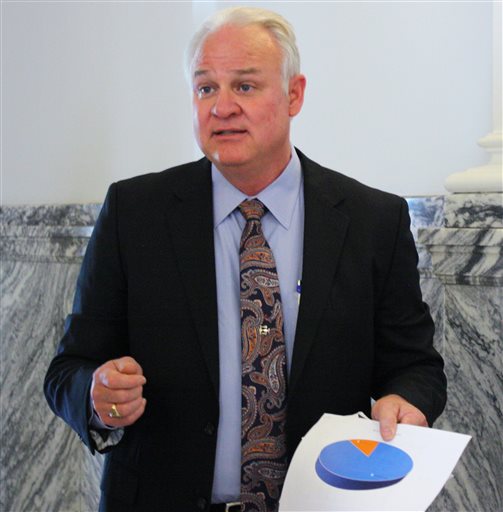The question confronting the Supreme Court was whether termination of a trash hauler’s contract by a county board of commissioners, presumably because of his frequent criticism of the board, constituted a violation of his First Amendment freedom of speech.
In Board of County Commissioners v. Umbehr, 518 U.S. 668 (1996), the Court ruled that it did.
Umbehr’s trash hauling contract was terminated after he criticized commissioners
Prior to his termination, Keen Umbehr, an independent contractor, had repeatedly criticized the three-member Board of County Commissioners of Wabaunsee County, Kansas, in both appearances before the board and letters and editorials in the local newspapers, alleging various illegalities and improprieties by the board. The board terminated Umbehr’s contract in a 2-1 vote against its automatic renewal.
Umbehr then filed suit against the two commissioners who voted against him, both personally and in their capacity as commissioners, alleging that the termination had resulted from his criticism of the board and so had violated his First Amendment rights.
Was Umbehr a public employee or independent contractor?
A federal district court recognized that the contract had likely been terminated in retaliation for Umbehr’s criticisms and that Umbehr had suffered damages as a result. Nevertheless, the court found in favor of the commissioners, granting their motion for summary judgment and holding that the First Amendment did not prohibit consideration of Umbehr’s comments in deciding whether to terminate his trash contract when it came up for renewal.
The court’s decision hinged on the distinction between a public employee and an independent contractor, Umbehr’s status; a public employee is accorded First Amendment protections.
The 10th U.S. Circuit Court of Appeals reversed the trial court’s decision, holding that independent contractors are entitled to First Amendment protection. The court, using a balancing test associated with public employees, determined the extent of First Amendment protection, and in doing so relied on Pickering v. Board of Education (1968).
Court said Umbehr’s had pulic employee rights
The U.S. Supreme Court granted certiorari. In a 7-2 decision written by Justice Sandra Day O’Connor, the Court affirmed the decision of the 10th Circuit, holding that the relationship between Umbehr and Wabaunsee County was sufficiently close to merit the recognition of a First Amendment right protecting the holder of an at-will contract from termination (or prevention of automatic renewal) in retaliation for speech.
Rejecting a “bright-line rule” that would deny independent contractors such protection, the Court also applied the Pickering balancing test, noting that the interests of the government as contractor (rather than employer) should be weighed against the relevant free-speech interests.
Court said contractor interests should be weighed against free-specch interests
The Court also held that in order to prevail, Umbehr would have to show that his contract was terminated in response to speech rather than merely showing that he engaged in speech prior to the termination.
Citing Mount Healthy City School District Board of Education v. Doyle (1977), the Court noted as well that the board would have a valid defense if it could show, by a preponderance of the evidence, that it would have engaged in the termination irrespective of the speech. Under Pickering, the board might also prevail if it could show that its interests outweighed the free speech interests of Umbehr.
In a dissent joined by Justice Clarence Thomas, Justice Antonin Scalia argued that the tradition of patronage was stronger than the First Amendment protections in this case.
This article was originally published in 2009. Dr. Linda Merola is an associate professor of Criminology, Law and Society at George Mason University. Professor Merola’s academic interests focus on constitutional law and, specifically, on understanding the ways in which societal changes may influence individual liberties. She has published numerous journal articles and research reports on topics related to civil liberties.

